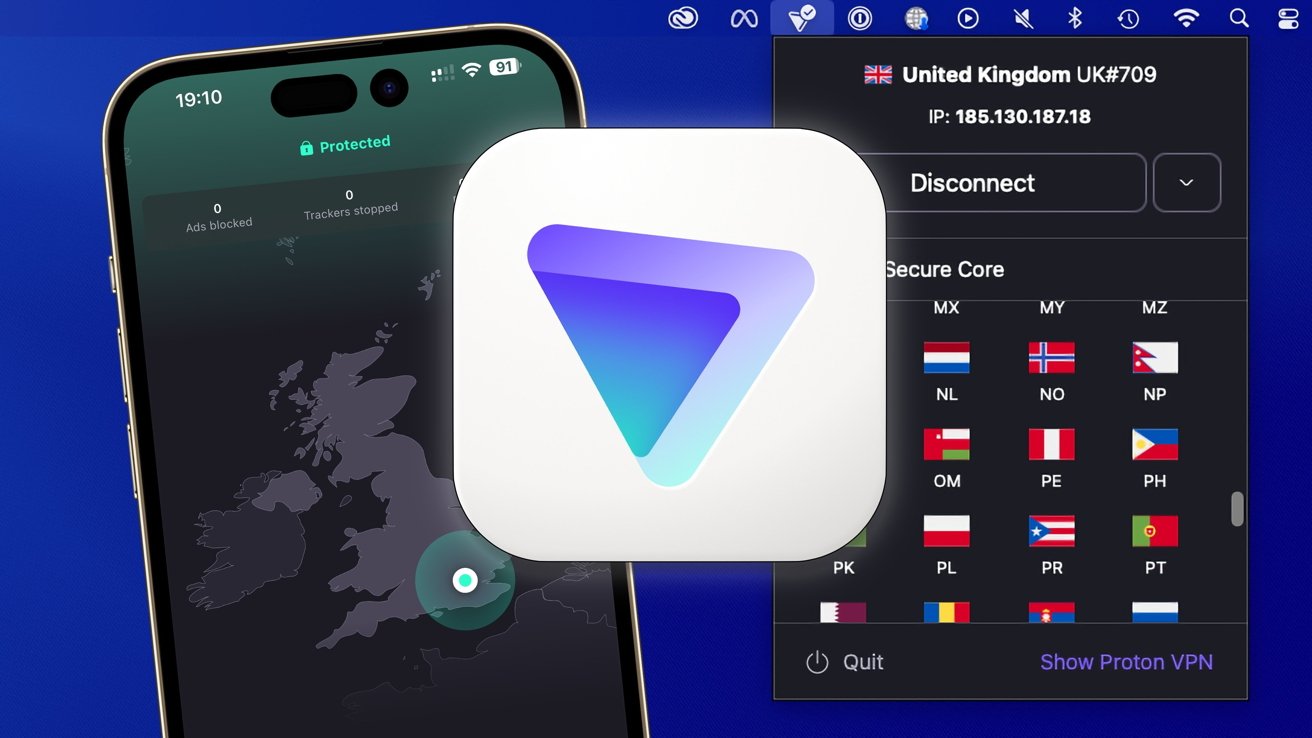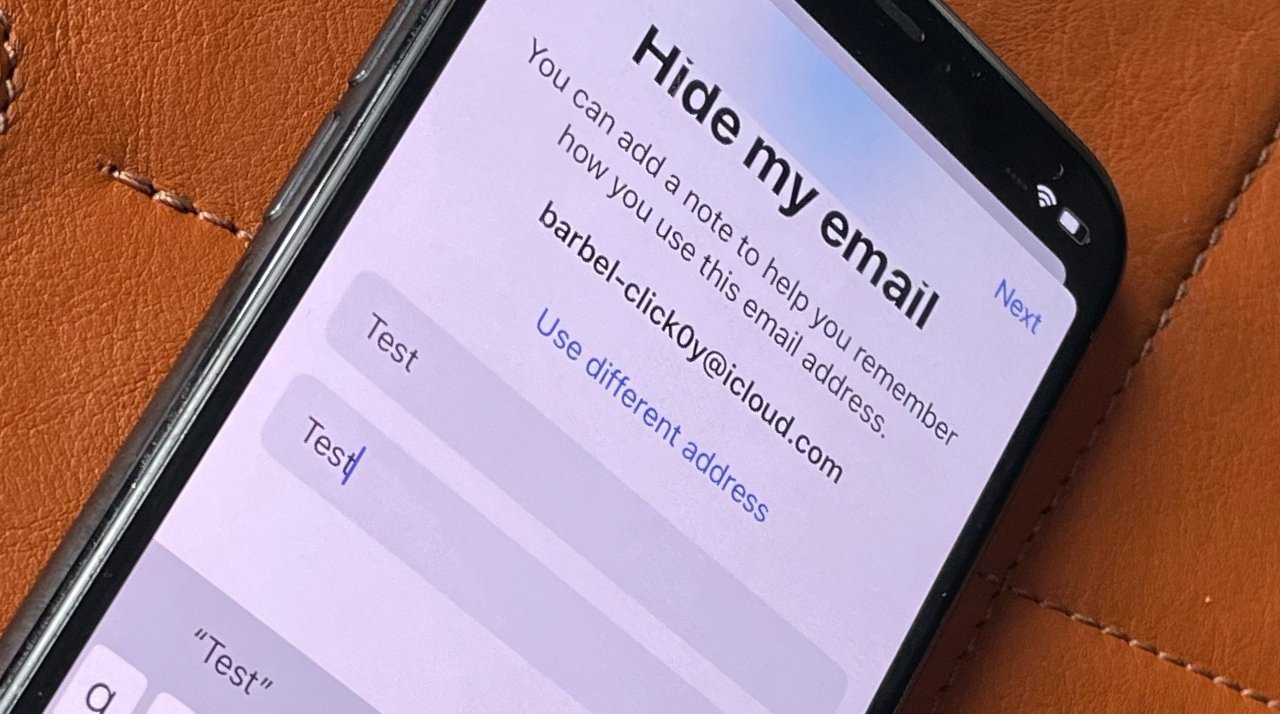Proton lawsuit targets Apple's grip on iPhone apps & payments
Apple is facing fresh legal heat from privacy company Proton, which wants to break open the iPhone's closed App Store.

Proton lawsuit targets Apple
Swiss privacy technology company Proton has filed a federal antitrust lawsuit against Apple in California, claiming Apple maintains an unlawful monopoly over app distribution and payment processing. It cites harm to developers and consumers.
The proposed class action, filed in Oakland, alleges Apple forces developers to distribute apps only through its App Store. It also claims Apple imposes mandatory payment processing and extracts commissions of up to 30%.
Apple has not yet publicly responded to the lawsuit, and it is not likely to do so soon.
Proton's complaint cites broad anti-competitive strategy
Proton's 73-page complaint outlines what it calls a systematic strategy by Apple to lock in consumers and developers. It says Apple designs iOS so that only its App Store can distribute apps, shutting out potential competitors.
The filing says Apple uses technical limits, contracts, and updates to block rival app stores. It also accuses the company of keeping exclusive control over in-app payments and charging high fees even when developers offer alternatives.
Proton claims Apple's conduct harms developers with high commissions and users with higher prices and fewer innovations. It seeks court orders for Apple to allow competing app stores and payment processors on iOS and monetary damages for affected developers.
Proton describes itself as Apple's direct competitor
Based in Geneva, Proton develops privacy-focused software like Proton Mail, Proton Calendar, Proton VPN, and Proton Drive. The complaint says these services directly compete with Apple's own offerings such as Apple Mail and iCloud.
Proton claims that its services offer superior privacy guarantees compared to Apple's offerings. According to the filing, the company serves over 100 million user accounts in more than 180 countries.
The company argues that Apple's App Store rules harm its ability to compete fairly, citing delays, opaque approval guidelines, and fees that reduce its profits. It claims that developers have no choice but to accept Apple's terms because there is no other way to reach iOS users.
Proton further alleges that Apple's recent policy changes allowing limited steering to alternative payment methods are cosmetic and preserve Apple's control. Technical barriers and complex rules make it difficult for developers to guide users to other payment options.
Even when steering is technically allowed, Apple still charges high commissions, which Proton argues makes alternatives practically worthless and maintains its dominance over in-app purchases.
Context of global antitrust scrutiny
Proton's lawsuit joins a wave of global legal challenges to Apple's App Store policies. The U.S. Justice Department and fifteen state attorneys general have sued Apple for allegedly monopolizing the smartphone market.
Apple has denied those allegations and moved to dismiss the case.
In Europe, Apple was fined $1.94 billion (1.8 billion) by the European Commission for abusing its dominant position. Regulators in South Korea, the United Kingdom, Germany, France, and India have all launched investigations or taken enforcement actions targeting Apple's App Store practices.
Proton's complaint describes these regulatory actions as evidence that Apple's conduct is widely recognized as anti-competitive.
Apple's market power under the microscope
The lawsuit argues Apple has used its dominant smartphone market share in the U.S., over 50% by various measures, to reinforce control over two aftermarkets. These aftermarkets include app distribution and in-app payment processing.

Proton claims that its services offer superior privacy guarantees compared to Apple's offerings
Proton claims Apple's strategy depends on high switching costs for consumers, such as users' reliance on iCloud and familiar apps. The complaint cites Apple's own internal discussions about locking users into its ecosystem and restricting cross-platform apps or "super apps" that could reduce dependence on iOS.
Proton also challenges Apple's justifications for controlling app distribution. It argues that other companies, like Google, allow competing app stores on their mobile platforms.
The company argues that Apple's App Store rules hurt privacy-first business models and favor surveillance capitalism. It also claims they enable censorship in authoritarian markets by controlling which apps can be distributed.
The lawsuit notes that Apple itself permits looser rules on macOS and in limited cases such as the WeChat mini-programs in China. WeChat is commonly referred to as a super app.
Legal details and requested relief
Filed in the Northern District of California (case number 4:25-cv-05450), the class action is led by law firms Quinn Emanuel Urquhart & Sullivan and Cohen Milstein Sellers & Toll.
Proton seeks an injunction that would require Apple to open iOS to rival app stores and payment services. It also demands monetary compensation for what it calls excessive commissions and the broader competitive harm imposed on developers.
The company says it wants to restore competition, lower prices, and improve user choice. It argues that Apple's current practices suppress innovation and maintain artificially high profits at the expense of the broader market.
Proton says it filed this lawsuit to ensure any settlement in related class actions includes real reforms, not just monetary payouts. In a public blog post, the company pledged to donate any money it receives from the lawsuit to democracy and human rights groups through its nonprofit Proton Foundation.
Read on AppleInsider

Comments
Oops! My bad, I meant Switzerland not Sweden. My fingers aren't working like they used to. I do know the difference between these two countries. I visited Switzerland back in 2001 or so.
The company argues that Apple's App Store rules harm its ability to compete fairly, citing delays, opaque approval guidelines, and fees that reduce its profits. It claims that developers have no choice but to accept Apple's terms because there is no other way to reach iOS users."
Seems like Proton has included the reply to their accusation right before their accusation. How can Apple be harming Proton's ability to compete if Proton is so successful and has so many customers all around the world? Apple should countersue, demanding that Proton make it easier for Apple to access Proton's customers who are currently using non-Apple devices.
Apple created the iPhone.
Apple created the App Store.
And they were good so the customers came.
Apple opened the App Store it created to third parties and said, “You can sell your product on *our* App Store and this is how much we charge for it. You don’t have to sell your product here but if you want access to the base of customers we created with our iPhone/App Store products, this is how we allow it.”
App developers said, “Not fair! You have to share your customers with us! We can’t make a product as good as yours so we want access to your customers instead.”
How anyone can think this is rational is ponderous.
The message is clear: Make something good that customers want and companies, courts and their governments will say, “How dare you make something so good and not give it to everyone else! You being so good that customers flock to you is unfair competition. You must be penalized for your goodness. We force you to share with those who cannot innovate the way you did. They deserve to benefit from your success just as much as you do. Never mind the fact that they made none of the investment, took none of the risks and contributed nothing in the way of innovation! You are forbidden from being the primary beneficiary of your own success.”
I’m a Proton subscriber. I’d be OK if Apple kicked them off the App Store. But the courts wouldn’t allow that, I’m sure.
I mostly blame the EU (but it started in the USA) for these entitled attitudes. If only Apple would say “screw this” and pull out of the EU market. Yes, it’s extreme and a massive kick in the teeth but it would de-fang the EU and get them to backpedal on their stupidity in a hurry. The outcry from their constituents would be deafening. And other companies would be emboldened to follow suit and the EU would be forced to back off their dictatorial behavior. But no, every company caves and complies and the EU continues to set the terms.
Sack up, Apple. Take the offensive in a bold way or you will continue to get fined and regulated until you buckle and/or get broken up like Bell System did.
Yes, Proton, every store in history has had an "arbitrary" markup that "artificially" taxes the purchases made in that store. So what?
If you don't like the markup at Target, go shop at Walmart. If you still don't like the Walmart markup, go shop at a flea market. If you don't like the entry fee at the flea market, go shop in a back alley on the street. Eventually you will find the hideous shopping environment you seek.
But prohibiting Target from charging any markup will not give you the Target shopping experience with zero-markup prices. It will simply destroy Target. Of course, if that's what you really wanted all along...
By pre screening everything and requiring all developers to use a standardized iOS UI, Apple's App Store changed the app market by making it possible to make money on apps. Developers could sell in volume without a big markup, because Apple removed almost all of the risk for trying new apps. They were all intuitive to use, wouldn't crash your phone, and were cheap enough that it's worth giving something a try without thinking too much about it.
If Apple hadn't created that model, a mobile app market created by Apple's competitors would have grown organically from the PC software market. The higher risk and higher costs built into that system would likely have resulted in a much smaller mobile app marketplace than currently exists. The smartphone market itself might be smaller, with even "dumb" phones remaining competitive against more expensive smartphones that have far less utility than what we have now.
But sure, let's kill the goose that laid the golden egg by enforcing competitors' demands that they be able to go directly up the goose's butt to dig for gold themselves.
I have the full suite of software and it was paid directly to Proton - not Apple.
Have all the iOS and Mac OS apps.
Not sure that aspect of the lawsuit will stand up to any level of scrutiny.